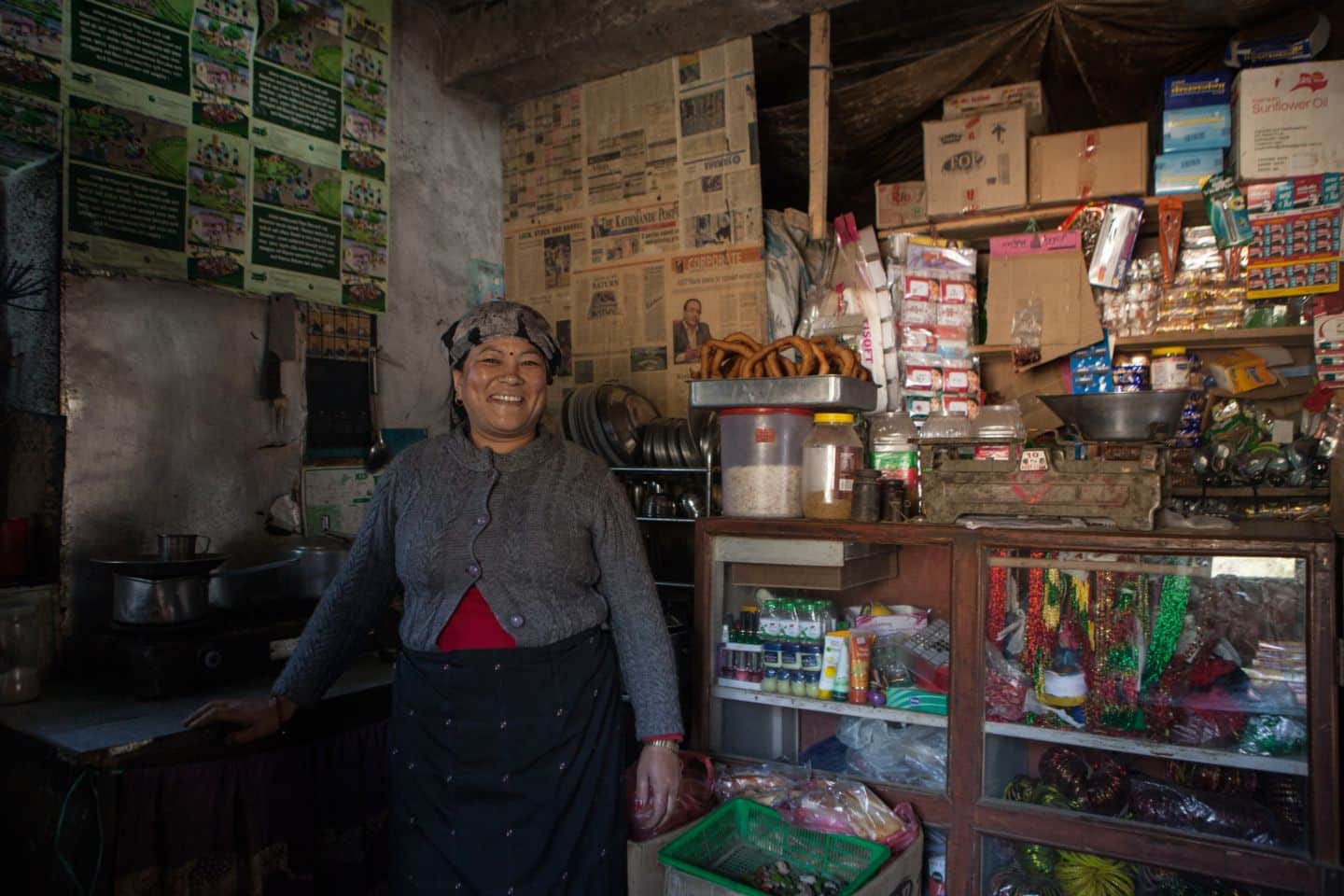Living in Dalchoki, in Nepal, is already a challenge, but the barriers an entrepreneur like Purnima Ghalan faces go beyond the inaccessibility of this small nepali village. Due to cultural norms and gender roles, women in Nepal are often left behind in launching and growing small-scale businesses.
Purnima, 40, is now a hotel owner residing at Konjyosom Rural Municipality-3, Dalchoki, Lalitpur with her family of four. For most of her life she worked as a housewife. Every day, she woke up very early to start her household routine. She cleaned, washed, and prepared food for her husband and children. Ten years ago she had nothing to start a business. She did not have land in her name, economic independence or financial support. It was after the financial crisis that struck her country in 2000 that she decided something needed to change in her life.
Her determination and desire drove her to opening a small grocery and tea shop, which ensured a monthly income of 2,000 – 5,000 Nepalese Rupee (USD 17-43). At the beginning, it was not easy. Local people threatened her to shut down the business and urged her to leave the area, since she was originally from a different village, Sankhu. In 2015, Centre for Rural Technology, Nepal (CRT/N) selected Purnima to take part in an economic empowerment programme mentoring female entrepreneurs in technical, managerial, leadership and empowerment aspects of a businesses. The Scaling of Energy Access through Women’s Economic Empowerment project, supported by ENERGIA, helped her improve her business skills, learn more about electric appliances for her business, and develop her confidence. Thanks to her ambition, determination and improved skills, with a loan from local cooperative she was able to open a hotel, which is the only one still running in the area. Her business’ turnover with the hotel and the grocery shop has increased to 90,000 NPR a month (USD 780).
“At first, I was not sure to attend the course. Luckily, I went and learnt a lot. After the training I registered the hotel, acquired a PAN bill, and kept a proper accounting file. It has worked! Over the past years, I got so busy I cannot leave my hotel to even attend family events”, said Purnima. In the Dalchoki area, only 5 percent of women have household’s decision making power and very few have land ownership. However, Purnima successfully registered a land and the hotel in her name, which is a significant step for wealth, social security and power in Nepal, especially for women.
Purnima’s dreams for the future do not stop here. She plans to expand her hotel business, to engage more employees, and to build one more floor and an additional underground hall for trainings. Nowadays, Purmina is member of a great number of groups and organisations that aim at realizing women entrepreneurs’ potential and at raising their voices to create an enabling environment for business opportunities. One of these groups is the Mother Group, a women’s group formed locally where members deposit a small amount of money and provide loans to other members for starting their own enterprise. “Personally, I encourage members of the Mother Group to start their own business according to their skills. It could be poultry, stitching, or farming. During our meetings, we share our experiences in what has worked and what did not work. I’d like to inspire other women to take it one step further for themselves, their families and the whole community” concluded Purnima.







